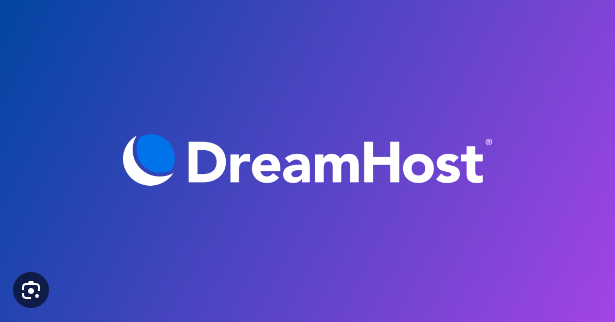Introduction:
In the vast realm of web hosting services, choosing the right provider can significantly impact your website’s performance. Two popular contenders in the hosting arena, Hostinger and DreamHost, often find themselves under scrutiny. This comprehensive comparison aims to dissect their features, performance, customer support, and pricing to determine which stands out as the superior hosting solution.
Section 1: Overview of Hostinger
Background and History
Hostinger, established in [Year], has rapidly gained prominence for its affordable hosting solutions. The company boasts a global presence, serving millions of customers with a focus on providing user-friendly services.
Key Features
- Performance: Discuss the speed and reliability of Hostinger’s servers.
- User Interface: Explore the ease of use and the intuitive control panel.
- Security Measures: Highlight Hostinger’s security features and measures in place.
Pros and Cons
- Pros: Affordable plans, excellent performance, user-friendly interface.
- Cons: Limited advanced features, customer support may have room for improvement.
Section 2: Overview of DreamHost
Background and History
DreamHost, founded in [Year], has established itself as a reliable hosting provider. Known for its commitment to open source technologies, DreamHost has a strong reputation for offering robust hosting solutions.
Key Features
- Performance: Evaluate the speed and reliability of DreamHost’s servers.
- User Interface: Assess the user-friendliness of DreamHost’s control panel.
- Security Measures: Discuss DreamHost’s security protocols and features.
Pros and Cons
- Pros: Strong commitment to open source, reliable performance, robust features.
- Cons: Pricing may be higher compared to some competitors, support may have occasional lapses.
Section 3: Performance Comparison
Speed and Uptime
- Server Speed: Analyze the speed tests of both Hostinger and DreamHost servers.
- Uptime: Examine the historical uptime records for both hosting providers.
Load Time and Page Speed
- Load Time: Compare the load times of websites hosted on Hostinger and DreamHost.
- Page Speed Optimization: Evaluate the tools and features offered for optimizing page speed.
Section 4: User Experience
Ease of Use
- Control Panel: Compare the control panels of Hostinger and DreamHost.
- Installation Process: Evaluate the ease of setting up a website on both platforms.
Customer Support
- Response Time: Assess the response time of customer support for both Hostinger and DreamHost.
- Support Channels: Compare the availability and effectiveness of support channels.
Section 5: Security Features
- SSL Certificates: Examine the provision and management of SSL certificates by both hosting providers.
- Firewall and DDoS Protection: Assess the security measures in place to protect websites from cyber threats.
Section 6: Pricing Comparison
Hosting Plans
- Shared Hosting: Compare the shared hosting plans of Hostinger and DreamHost.
- VPS and Dedicated Hosting: Evaluate the pricing and features of VPS and dedicated hosting options.
Promotions and Discounts
- Special Offers: Explore any ongoing promotions or discounts provided by Hostinger and DreamHost.
Conclusion: Making the Decision
After a thorough examination of Hostinger and DreamHost in terms of performance, user experience, security features, and pricing, it’s clear that each has its strengths and weaknesses. The choice between Hostinger and DreamHost ultimately depends on individual needs, preferences, and budget considerations. Both hosting providers offer unique features, and a careful consideration of your specific requirements will guide you towards the hosting solution that aligns best with your goals.
Hostinger vs. DreamHost: Unveiling the Best Web Hosting Solution
Choosing the right web hosting provider is a critical decision for any blogger or website owner. With numerous options available in the market, two names that often stand out are Hostinger and DreamHost. In this comprehensive comparison, we’ll delve into the key aspects of both hosting services to help you make an informed decision.
1. Introduction
Hostinger
Hostinger, established in 2004, has rapidly grown to become one of the leading web hosting providers globally. Known for its affordable pricing and feature-rich plans, Hostinger caters to a wide range of users, from beginners to advanced developers.
DreamHost
DreamHost, founded in 1996, boasts a long-standing reputation in the hosting industry. It is recognized for its commitment to open source technologies and excellent customer support. DreamHost’s hosting solutions are favored by bloggers, developers, and businesses alike.
2. Performance
Hostinger Performance
Hostinger places a strong emphasis on speed and reliability. Their servers are strategically located around the world, and they utilize a combination of solid-state drives (SSDs), LiteSpeed web server, and caching mechanisms to ensure fast loading times for websites. Hostinger also provides a 99.9% uptime guarantee, backed by a robust infrastructure.
DreamHost Performance
DreamHost is renowned for its reliable performance and commitment to green hosting. They employ solid-state drives (SSDs) for storage and use the latest technologies to enhance website speed. DreamHost also offers a 100% uptime guarantee, emphasizing their confidence in the stability of their hosting environment.
Verdict: Both Hostinger and DreamHost excel in terms of performance, with a focus on speed and uptime. Your choice may depend on specific preferences or requirements.
3. Pricing
Hostinger Pricing
Hostinger is often praised for its budget-friendly hosting plans. They offer shared hosting, cloud hosting, and VPS hosting at competitive prices. Hostinger frequently provides discounts and promotions, making it an attractive option for those on a tight budget. However, it’s essential to consider the renewal prices, which can increase after the initial term.
DreamHost Pricing
DreamHost offers transparent and straightforward pricing. While their plans may seem slightly higher in comparison, they include various features such as a free domain, unlimited bandwidth, and email accounts. DreamHost also stands out by providing a 97-day money-back guarantee, showcasing their confidence in customer satisfaction.
Verdict: Hostinger wins on the initial cost, but DreamHost’s additional features and extended money-back guarantee could be factors in your decision-making process.
4. Features
Hostinger Features
Hostinger’s hosting plans come with an array of features, even in their basic packages. Some highlights include a custom control panel, free SSL certificate, and a website builder. For developers, there is support for PHP, MySQL, and Git. Hostinger also provides a free website migration service for users looking to switch hosting providers.
DreamHost Features
DreamHost is known for its commitment to open source, offering support for various programming languages, including PHP, Ruby on Rails, and Python. Their control panel is user-friendly, and all plans include a free Let’s Encrypt SSL certificate. DreamHost stands out with its focus on privacy, offering free WHOIS domain privacy protection.
Verdict: Both Hostinger and DreamHost offer a robust set of features, catering to users with diverse needs. The choice depends on specific requirements and preferences.
5. Security
Hostinger Security
Hostinger employs a range of security measures, including Bitninja WAF (Web Application Firewall), SSL certificates, and automated daily backups. They also provide a free SSL certificate for enhanced website security. Hostinger’s security protocols aim to protect websites from common online threats.
DreamHost Security
DreamHost takes security seriously, offering free Let’s Encrypt SSL certificates, automated backups, and advanced mod_security rules. Additionally, DreamHost performs regular server monitoring and updates to address potential vulnerabilities promptly.
Verdict: Both Hostinger and DreamHost prioritize the security of their hosting environments, providing essential features to safeguard websites.
6. Customer Support
Hostinger Customer Support
Hostinger offers 24/7 customer support through live chat and ticketing systems. Their knowledge base is extensive, providing helpful articles and tutorials for users. While the live chat is generally responsive, some users may prefer additional support channels, such as phone support.
DreamHost Customer Support
DreamHost provides customer support through live chat, email, and an extensive knowledge base. Their customer support is known for being reliable and helpful. While they lack phone support, their other channels are effective in resolving queries.
Verdict: Both Hostinger and DreamHost offer reliable customer support, with a range of channels to address user queries. The choice may come down to personal preferences and the preferred mode of communication.
7. User-Friendly Interface
Hostinger Interface
Hostinger uses a custom control panel that is intuitive and user-friendly. The dashboard is designed to simplify website management tasks, making it suitable for beginners. Hostinger’s interface is clean, and the navigation is straightforward.
DreamHost Interface
DreamHost utilizes a custom control panel that is also user-friendly. The dashboard is well-organized, allowing users to manage their websites efficiently. DreamHost’s interface is particularly praised for its simplicity, catering to both beginners and experienced users.
Verdict: Both Hostinger and DreamHost provide user-friendly interfaces, making it easy for users to manage their websites. The choice depends on personal preferences and familiarity.
8. Conclusion
Choosing between Hostinger and DreamHost ultimately depends on your specific needs and preferences. Hostinger is an excellent choice for those on a tight budget, looking for affordable hosting with reliable performance. On the other hand, DreamHost is suitable for users valuing additional features, extended money-back guarantees, and a commitment to open source technologies.



